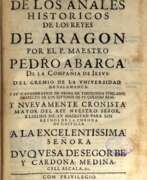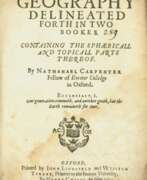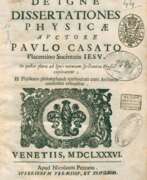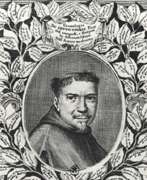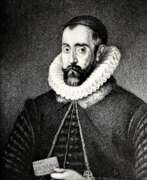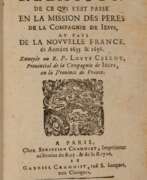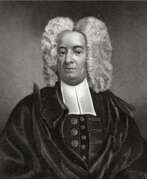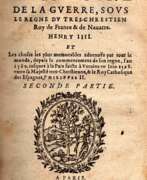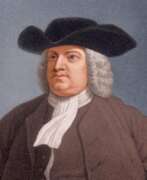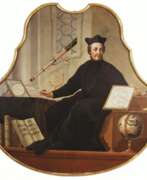Theologians 17th century
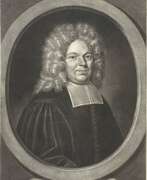

Jacques Basnage de Beauval was a French theologian and historian, diplomat and writer.
His father was a prominent lawyer and his grandfather and great-grandfather were pastors, Jacques studied theology and languages at the Academy of Saumur, then at Geneva and Sedan. In 1676, Jacques Basnage was appointed pastor at Rouen during the revocation of the Edict of Nantes, was forced to flee France for Holland, where he worked as a theologian, polemicist, historian, and diplomat in the service of the Grand Pensioner Hensius.
In 1717, on behalf of Holland, Basnage was sent to sign the treaty of the Triple Alliance (France, Holland, England). In the Annals of the United Provinces (1719-1726), compiled from the peace negotiations held at Münster, he displays breadth of vision, wisdom, and impartiality.
About 1719 Jacques Basnage was appointed historiographer of the Dutch states. He wrote several books on the Bible, the history of the Church, and the history of the Jewish people. Among the best known of these are his History of the Religion of the Protestant Denominations (1690), History of the Church of Jesus Christ to the Present Time (1699), written from Protestant positions, and History of the Jews (1706), as well as Jewish Antiquities, or Critical Notes on the Republic of the Jews (1713).
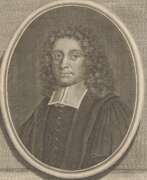

Étienne Chauvin was a French Protestant theologian and philosopher.
Chauvin's philosophy and worldview were entirely Cartesian. After his expulsion from Nîmes, Étienne Chauvin withdrew to Rotterdam, where he preached for several years in the Walloon Church. He was succeeded as professor of Baille at Rotterdam. In 1695 the Elector of Brandenburg appointed him pastor and professor of philosophy, and afterward inspector of the French college at Berlin.
Etienne Chauvin's major work is Lexicon Rationale, sive Thesaurus Philosophicus (1692). He also wrote Theses on the Knowledge of God (1662) and published the New Journal of Scholars (1694-1698).
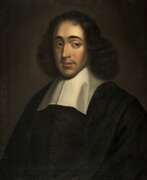

Benedictus Spinoza (Spanish: Baruj Espinosa) at birth Baruch Spinoza is a Dutch philosopher-rationalist of Jewish origin, a bright representative of the Age of Enlightenment.
Spinoza was born into a family of Portuguese Jews in Amsterdam, who converted to Christianity but returned to Judaism. As a young man, he was considered an outstanding Talmudic scholar and a promising religious scholar. But, inspired by the philosophical writings of René Descartes and Francis Bacon, the young philosopher soon fell outside the orthodox tradition because of his radical views. In 1656 he was severely excommunicated for heresy.
For the rest of his life, Spinoza spent his modest life grinding lenses and privately teaching philosophy, but he also wrote anonymously published philosophical treatises and secretly exchanged letters with many philosophically inclined luminaries of the wider European Enlightenment. Spinoza's only book, published in 1663 in Amsterdam under his own name, was Renati Des Cartes Principiorum Philosophiae Pars I, & II, More Geometrico demonstrate (Principles of Cartesian Philosophy). These principles served as a preparatory work for many metaphysical views in his most important treatise, Ethics (1677).
Benedict Spinoza defended the philosophical life from religious persecution and advocated a new, liberal, democratic regime to support that life. Although Spinoza was often persecuted as an atheist in his time, his writings played an important role in shaping philosophy, theology, and politics in the centuries to come. Of all the philosophers of the seventeenth century, Spinoza is one of the most relevant today.
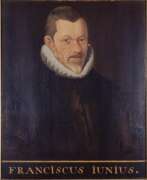

Francis Junius the Elder, born François du Jon, was a French linguist, exegete and professor of Reformed theology, and diplomat.
Junius first studied law and then theology and became a student of Jean Calvin and Theodore Beza in Geneva. For his success and knowledge of languages he was appointed minister at Antwerp, but was forced to flee to Heidelberg in 1567.
In collaboration with Immanuel Tremellius he wrote one of the significant translations of the Bible into Latin, and his theological work De Vera Theologia is the most important work on Reformed dogmatics. Some of du Jon's works were published in 1882 by Abraham Kuyper in his Reformed Library. His son François du Jon the Younger (1591 - 1677) became a noted art historian and founder of Germanic philology.
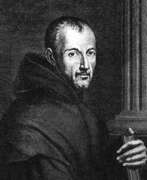

Marin Mersenne (also Marinus Mersennus or le Père Mersenne) was a French mathematician, physicist, philosopher and theologian, and music theorist.
Mersenne was educated at the Jesuit college of La Fleche and went on to study theology in Paris. He also became a member of the Order of the Minims and taught philosophy and theology at Nevers. He developed his ideas about the essence of the world and knowledge, insisting on the importance of experimentation and observation, and contrasted the rational natural world with human reason.
Beginning in 1635, Mersenne founded the Académie Parisienne, the forerunner of the French Academy of Sciences, where France's leading mathematicians and natural philosophers gathered. It provided a forum for the exchange of ideas among scientists and promoted the works of René Descartes and Galileo. The scientist's most famous achievement in mathematics was finding a formula for generating prime numbers, known today as Mersenne's Numbers. In 1644, Mersenne published his studies of Mersenne numbers and their relationship to prime numbers. His work in number theory and arithmetic proved pivotal to the development of mathematics in the seventeenth century.
He corresponded with many other scientists of the era, such as René Descartes, Blaise Pascal, and Pierre Fermat. However, his contributions extend much further, through his role in disseminating the work of the outstanding minds of his time. Mersenne traveled extensively throughout Europe, bringing new scientific ideas to France. He was an important mediator in the exchange of knowledge and contributed to the advancement of science in his era.
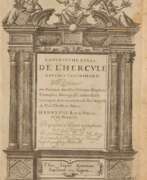

André Valladier was a French Jesuit, theologian and writer.
Valladier served as abbot of the Benedictine abbey of Saint-Arnoux and worked as professor of rhetoric at Avignon. He published about ten works on various subjects. The first of these was The Royal Labyrinth, a book describing the visit of King Henry IV and his new wife, Maria de' Medici, to the city of Avignon. This illustrated book was a great success and went through many editions.
